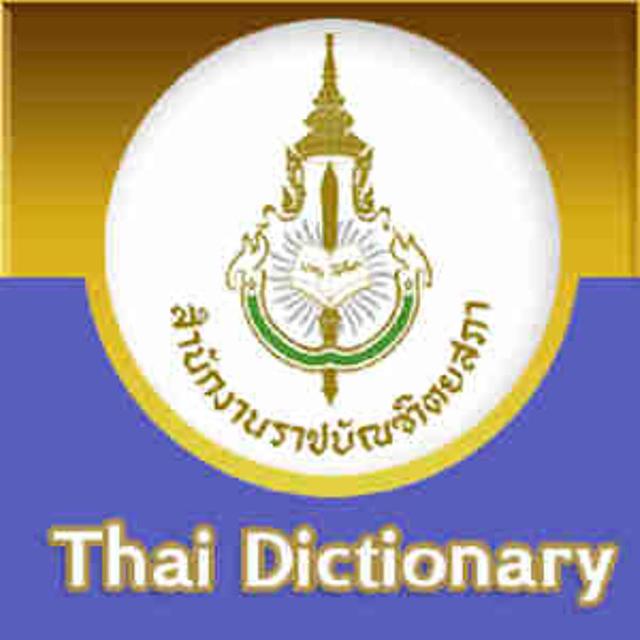A Call from the Wilderness
A Call from the Wilderness
We have been reading my blogs about weekend research on Thai language and พจนานุกรม ฉบับราชบัณฑิตยสถาน on Gotoknow for some 5 years now. We have had our call to releaase RSTD from glasshouses (or glass cabinets) to bazaars (or schools and streets) about 3 years ago heard and answered (with mobile app of RSTD) last year. Some of us have used the RSTD app and found it useful but somewhat wanting. For a 'standard reference' of Thai langauge, we have a duty of care and onus to use, maintain and contribute to RSTD. Here is another call for revision of RSTD. We have to make this call. If not who will?
I use RSTD in my study of Thai language and I come to ask questions like:
- Is RSTD complete? (That all Thai words or at least every word used is defined.)
- Why does RSTD not have 'pronunciation' for every 'word'?
- How to advance Thai language into the 'digital age'?
---
I set out to answer if RSTD is complete. I found that RSTD is not complete:
= new words used in the bazaar today are not included.
= there words used in definition of 'head' words but not themselves defined.
= ... (Please see a snippet from my request to the Royal SOciety for revision of RSTD)
COMPLETENESS of RSTD
Completeness of a dictionary (of a language) means:
(a) all words used in a language is defined and explained in the dictionary
(b) all words used in definitions (บทนิยาม) must be defined.
This requires a definition of 'compound word' (แม่คำ) that is made up from 'simple words' or 'atomic words' (ลูกคำ) that cannot be divided further. That is :-
(A) any simple word is a word
(B) a compound word is a word if and only if the compound has meanings different from its component words. For examples
- แม่น้ำ is a word made from 2 simple words แม่ and น้ำ
- เด็กเล็ก is a compound but not another word because its meaning is only qualified. That is เล็ก is an adjective for เด็ก.
- common phrases may be words because they mean differently from their compound meaning. For examples อกอีแป้นแตก, ไปไหนมาสามวาสองศอก, ทางแยก, and เลี้ยงโต๊ะจีน.
A test of RITD's completeness is conducted by comparing 2 lists: a list of 'head words' and a list of words used in their 'definition' (split into words by a software program 'SWATH'). The test shows considerable number of 'words' (as split by SWATH) not defined as 'head word'.
There are several sources of 'errors' in this test:
(1) deficiency of SWATH in dealing with complex vowels, and foreign (including Pali and Sanskrit) words
(2) instances of 'nikhahit + sara aa', special characters and spaces in RITD
(3) omission, oversight and/or evolution of the language and RITD editions
(4) programming errors introduced to 'normalize' lists for comparison
(5) วิสามานยนาม (proper nouns) (locality/object/concept/product/people names,...)
Examples of words undefined in RITD: คาดหมาย, ความหมาย, งะงก, จเข้, จํ๋าหนับ, ชี, ธรรมยุต (defined in RITD2542 but not in RITD2554), น้ำกรวด, มั่งมีในใจ แล่นใบบนบก, มือถือสาก ปากถือศีล, มือไม่พาย เอาเท้าราน้ำ, พณหัว, ภันเต, ยิว (in RITD2542 but not in RITD2554), ล้านช้าง, ล้านนา, วั่งตี, วิธิ, ศรีษะ, ศิลปากร, สะเดาะเคราะห์ and สึนามิ. (Full lists and software used to search for (undefined) words are available on request.)
Though absolute completeness will not be achieved with any living natural language, the usefulness of a reference dictionary can be improved. With considerations for sources of errors and 'the concept of word' (above), it is recommended that many more 'words' should be defined and added to RITD to improve its usefulness and completeness.
<p “=””>
[More to come. But in the meanwhile let lighten up our days with some observations on some examples of Thai ‘abbreviations’]
</p>
การเขียนคำย่อ :
อักษรย่อคำนำหน้านาม (from ราชบัณฑิตยสภา)
...
เด็กชาย ด.ช.
เด็กหญิง ด.ญ.
...
นายแพทย์ นพ.
แพทย์หญิง พญ.
...
นายสัตวแพทย์ นสพ. (ผู้จบปริญญา)
สัตวแพทย์ สพ. (ผู้จบการศึกษาระดับประกาศนียบัตร ทั้งชายและหญิง)
สัตวแพทย์หญิง สพญ. (ผู้จบปริญญา)
...
ดอกเตอร์ ดร. (Why not *ดุษฎีบัณฑิต ดบ. because 'doctor' is ambiguous and not a Thai word? )
**ดอกเตอร์หญิง ดรญ. (***ดุษฎีบัณฑิตหญิง ดบญ.)
...
สารวัตรใหญ่ สวญ. (****ไม่ใช่ สารวัตรหญิง)
;-)
ความเห็น (0)
ไม่มีความเห็น